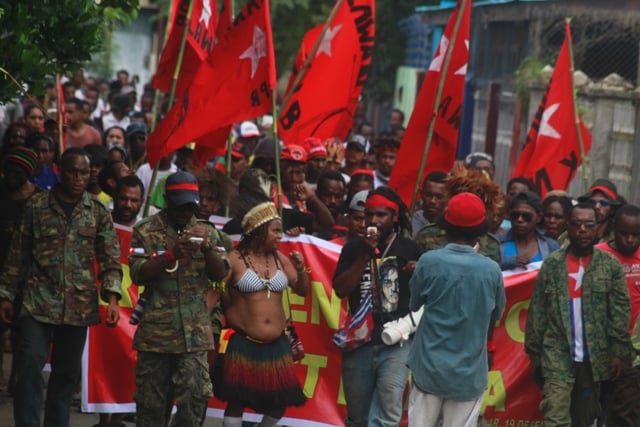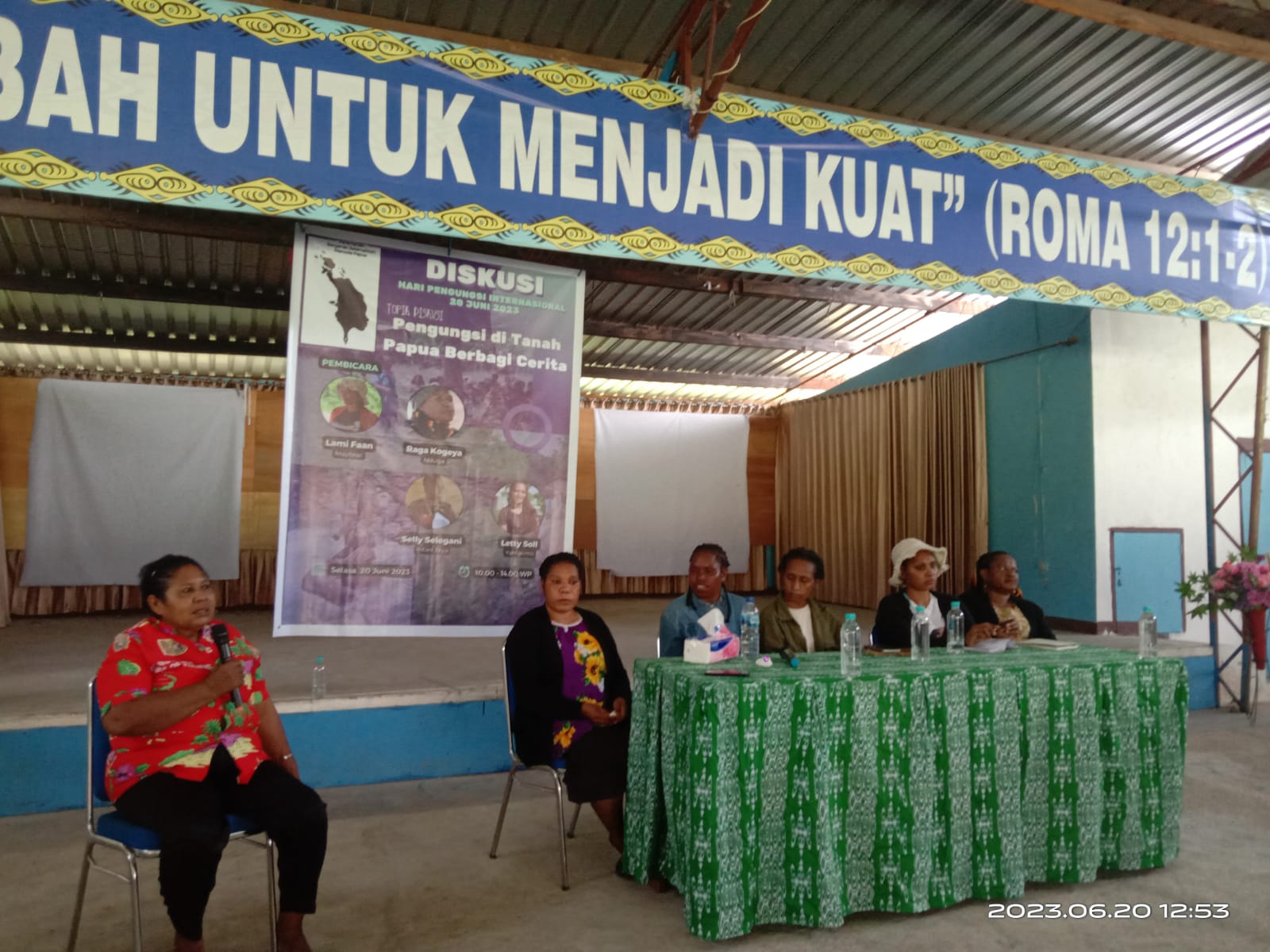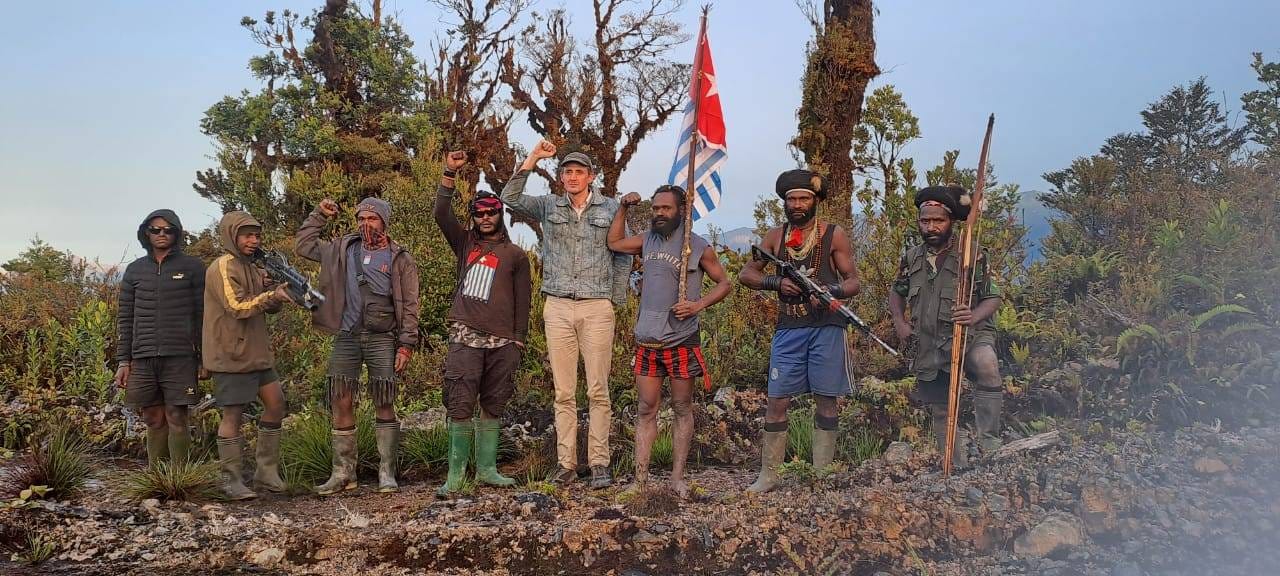
Jayapura, Jubi – The Constitutional Court (MK) held a judicial review session of the Criminal Code related to the phrase “makar” (treason) for two applications, namely Number 7 / PUU-XV / 2017 and Number 28 / PUU-XIV / 2017, Monday (July 24). The agenda of the trial of both cases is to hear the expert statement from the Petitioner and the House of Representatives.
I Ngurah Suryawan, a scholar in cultural anthropology as the expert presented by the Petitioner called the Government failed to catch what has really happened in Papua. It is related to the cultural expression that society runs there.
“When they conducted cultural attractions, the treason article is even imposed,” he explained in a session led by Chairman of the Court, Arief Hidayat.
The anthropologist of Papua State University (Unipa) exemplifies some misperceptions in understanding of Papuan culture. For example, when the a man from Dani tribe painting his body with a variety of colors is considered weird, but that is limited to cultural expression. It sometimes invites the apparatus to conduct forced dissolution.
The government, he said, should try to learn more about Papuan culture to avoid misunderstanding. In addition, also to create a synergistic relationship with the people of Papua. For him the approach should be conducted not only politically. Therefore, the urgency to solve the problems in Papua is through culture.
“So do not be penalized. This can kill and curb the cultural expression of Papuan society, ” he asserted.
Himself exemplifies a unique aspect of Papuan culture. For example, the tradition of mop that form a kind of standup comedy today. Its content is to critique the problems of life in a satire and humorous way.
Meanwhile, the Petitioner’s witness Yudi Pratama told his experience when he was a member of Fajar Nusantara Movement (Gafatar). According to him, his social life becomes chaotic since then because of stigma he got from the people. “We have material, psychological, and freedom losses,” he explained.
Yudi told their group was forcibly expelled from Borneo as known as a member of Gafatar. In addition, his friend also got unpleasant events when he has to make a statement letter of ‘decent behaviour’ from the police. “My friend was written involved in a criminal act. In fact, the verdict related Gafatar court at that time has not been decided,” he said.
Meanwhile, other expert Petitioner Made Darma Weda put forward questioned related to the definition of treason which does not yet exist in the Criminal Code. Ideally the plot should be defined in the form of clearer behavior.
This is to distinguish the crime of treason with other criminal acts. “All this time, the reference is to article 87 of the Criminal Code. But there is no definition what treason is,” explained the Graduate Lecturer of Law Program University of Krisnadwipayana.
The House of Representatives Commission III member of Golkar faction Adies Kadir called the effort to overthrow the Government not always manifested in the act of arming or acts of violence. The overthrow may also be carried out by incitement.
“This means that the provision is a preventive measure to protect the country. Treason in the context is widely interpreted,” he said.
Petitioner of the case Number 28 / PUU-XV / 2017 is Hans Wilson Wader, Meki Elosak, Jemi Yermias Kapanai, and Father John Jonga, and Yayasan Satu Keadilan and the Kingmi Church in Papua. They examined Article 104, as well as Articles 106 through Article 110 of the Criminal Code.
According to him, the regulation governing the mockery is used by the Government to criminalize the Petitioners and has impaired the constitutional rights of the Petitioners as citizens.
The case Number 7 / PUU-XV / 2017 was filed by the NGO Institute for Criminal Justice Reform (ICJR). They examined Article 87, Article 104, Article 106, Article 107, Article 139a, Article 139b, and Article 140 of the Criminal Code. They see no clear definition of the word ‘Aanslag’ which is defined as makar/treason.
Though ‘makar’ comes from the Arabic word, while ‘aanslag’ more precisely interpreted as an attack. This according to them has obscures the basic meaning of the word aanslag. (*)
*This article is reissued and translated from the website of the Constitutional Court of the Republic of Indonesia
















